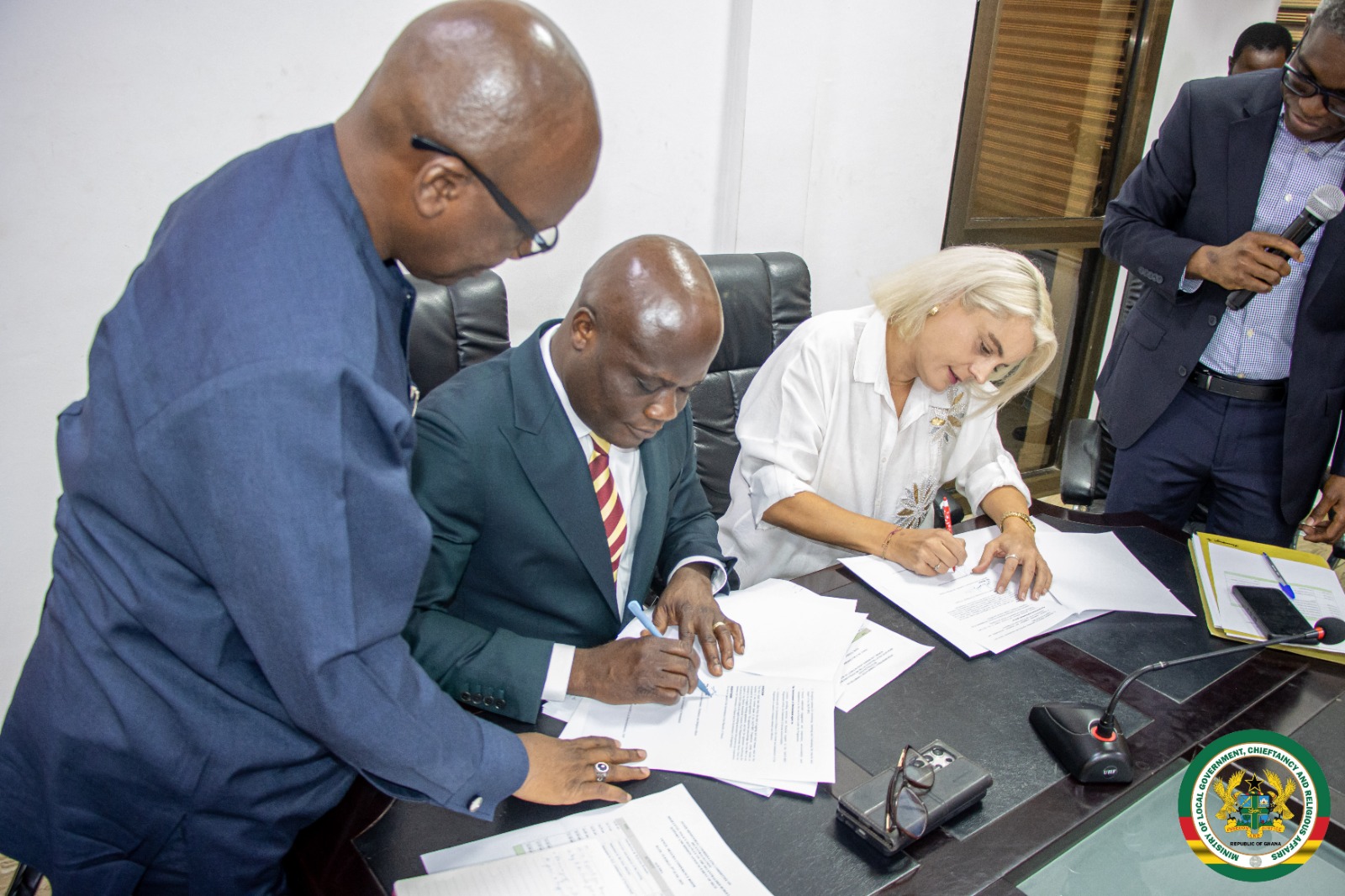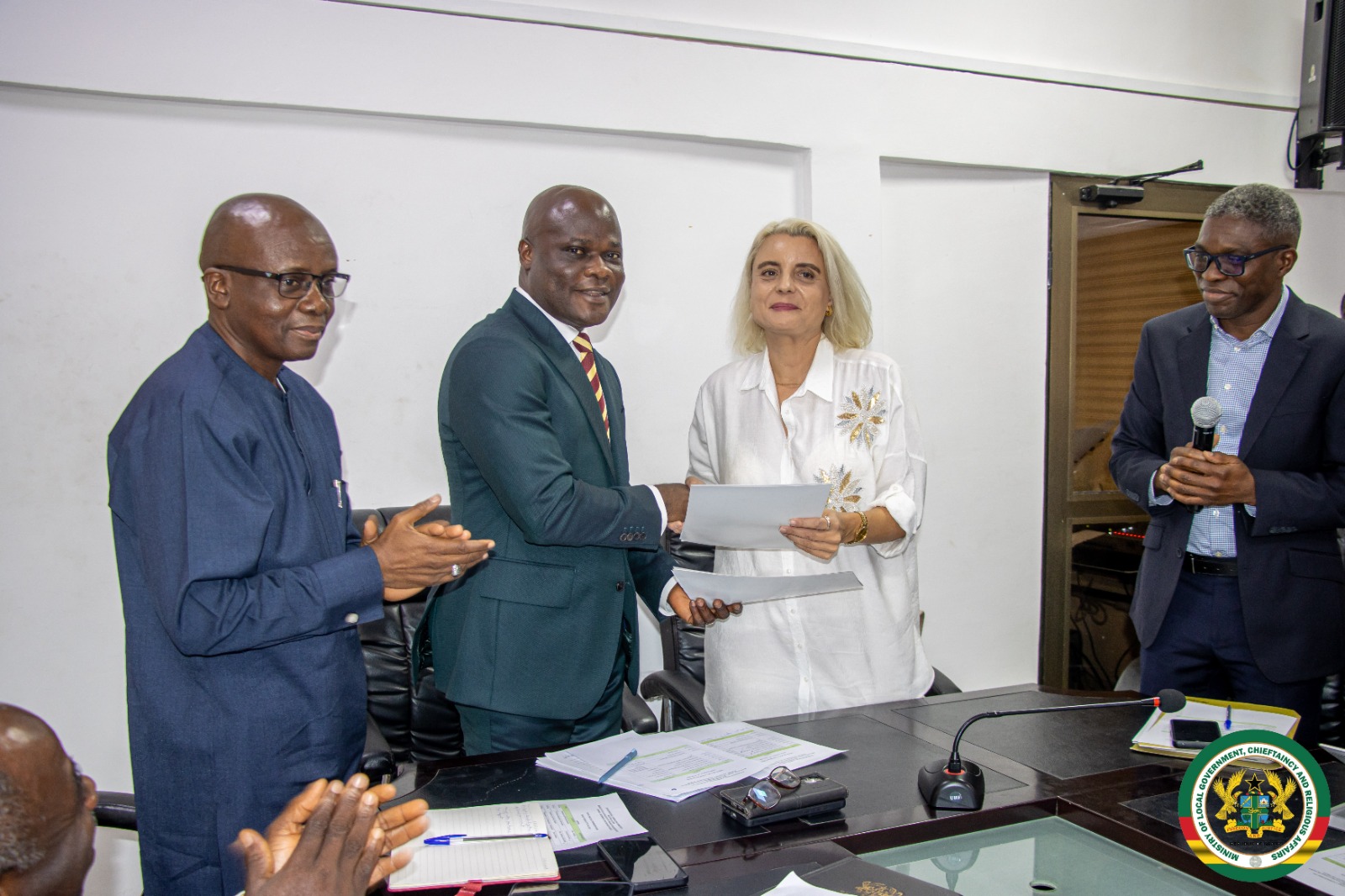The Government of Ghana has reaffirmed its commitment to deepening decentralisation and promoting accountable local governance, with a renewed call for the election of Metropolitan, Municipal and District Chief Executives (MMDCEs) on a non-partisan basis.
The announcement was made by the Minister for Local Government, Chieftaincy and Religious Affairs, Hon. Ahmed Ibrahim (MP), during a High-Level Policy Dialogue on Decentralised Budget Support held at the Ministry’s conference room in Accra.
The event brought together key development partners including the Swiss Ambassador to Ghana, H.E. Simone Giger, and Mr. Philip Orga, Head of Operations at SECO Headquarters in Bern, alongside top-level representatives from government agencies, civil society, and local governance institutions.
The dialogue focused on Switzerland’s continued support through the District Assemblies Common Fund–Responsiveness Factor Grant (DACF-RFG), a key mechanism for empowering local authorities with the resources needed to drive grassroots development.
Hon. Ibrahim underscored the government's resolve to reset Ghana's governance landscape in alignment with the National Democratic Congress (NDC)'s 2024 manifesto, which places emphasis on job creation, accountability, and inclusive development. He noted that the election of MMDCEs on a non-partisan basis is a cornerstone of this vision.
Making reference to the 2011 Constitutional Review Commission’s recommendations, the Minister described the current appointive system as undemocratic and inconsistent with Ghana’s broader democratic aspirations. “It is my ardent hope that with your support, we will work together to complete all engagement processes to actualise the government’s vision for the election of MMDCEs,” he stated.
The Minister also revealed that approximately 95% of the President’s nominees for MMDCEs have been confirmed by their respective Assemblies. Orientation and training sessions for the appointees are underway, supported by collaborative programmes with institutions such as the Institute of Local Government Studies (ILGS), to ensure efficient and professional service delivery.
In a broader reform agenda, Hon. Ibrahim disclosed that the Ministry will soon submit several key legislative proposals to Parliament. These include the reintroduction of the University of Local Governance and Development (ULGD) Bill, aimed at providing specialised training for local government officials, and amendments to the Land Use and Spatial Planning Act to enhance spatial development planning.
He further outlined upcoming interventions under the Reset Agenda, including the operationalisation of the National Sanitation Day campaign under the “Clean Up Ghana” initiative, dissemination of the Local Economic Development Policy (2024–2029), and the empowerment of traditional authorities through a Royal Academy initiative.
Development partners commended Ghana’s efforts to strengthen local systems, reaffirming their commitment to provide technical and financial support. The Swiss Government, through SECO, and the German Government via KfW, pledged sustained backing, with additional funds expected to reach over 70 vulnerable districts once ongoing negotiations conclude later this year.
In closing, Hon. Ibrahim called for deeper cooperation and constructive dialogue. “We must reflect, reset, and bolster our decentralisation agenda to ensure development reaches the last mile. Together, we can make this vision real,” he said.
Source: Chantal Aidoo
(Public Relations Unit MLGCRA)


